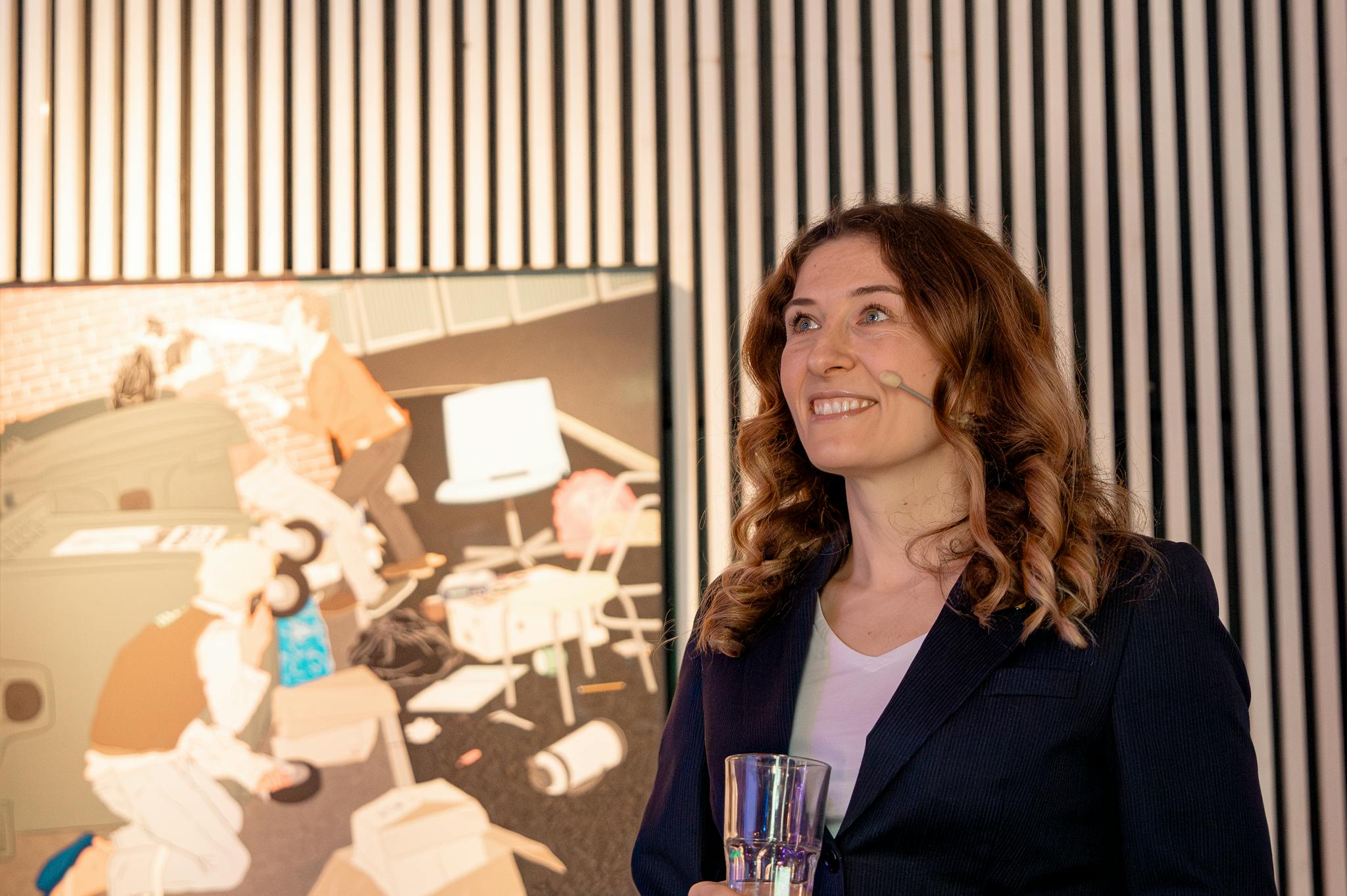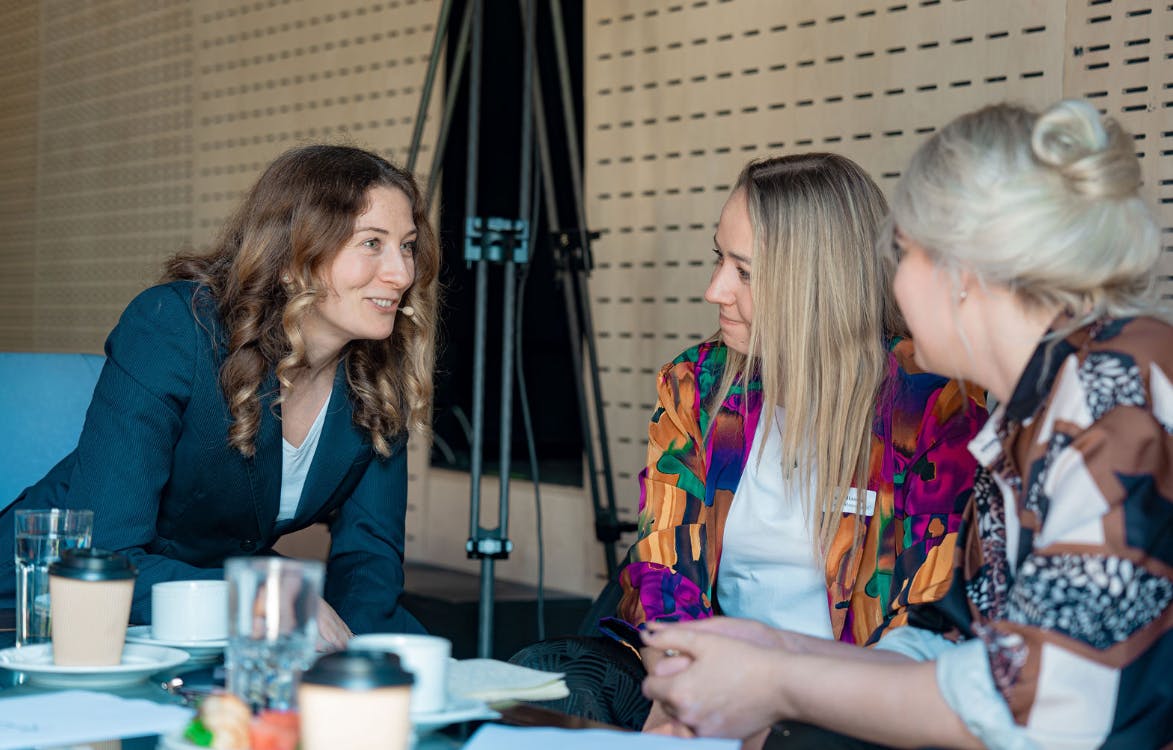
Lola Onipko and the Womenture journey
Jun 10, 2024
Womenture is proud to collaborate with Lola Onipko, a respected ambassador for the cause. Lola’s commitment to empowering women entrepreneurs is truly inspiring and has a significant impact.
Q1: Lola, as an ambassador for the Womenture initiative, you are deeply involved in empowering women to become impact-driven founders. Can you share some of the key challenges you have observed that women face when starting their entrepreneurial journey, and how Womenture helps them overcome these obstacles?
There are several key challenges that women commonly face:
1. Self-Doubt and Confidence
"Am I good enough? Do I have what it takes to be a founder? Where do I start?" There's a common misconception that successful entrepreneurs are highly competent individuals who "know it all." In reality, founders are constantly learning and often build teams to complement their own skills. Womenture's pre-acceleration program addresses this by supporting women in developing key competencies and skills. Programme provides a structured roadmap for launching ideas, which significantly boosts confidence in their abilities.
2. Access to networks and role models
Successful founders often benefit from mentors, sponsors, and peers who inspire and guide them. Unfortunately, women frequently lack these resources. Womenture creates immense value by building a community and support networks for female founders. Initiative facilitates connections with peers, enabling women to learn from each other and grow. This community offers a safe space to discuss both successes and setbacks, which is crucial for enrepreneurs. Additionally, discussions about balancing business and family life/kids are particularly relevant, as female founders often find more empathy and shared experiences among their women peers.
3. Financial barriers
Not every founder can bootstrap their startup, and many great ideas need capital to scale. Women often face difficulties in accessing financing, receiving only a small fraction of the capital that male founders do. This disparity is partly due to unconscious biases from investors and a lack of confidence and experience in pitching among women. Womenture helps by providing opportunities for female founders to pitch to investors and receive valuable feedback. Womenture’s team and community members also share information about funding opportunities and organize events to connect women with potential investors.
4. Mindset challenges
Women often struggle with fear of failure, perfectionism, and overthinking potential negative outcomes. Womenture is designed to challenge these tendencies and encourage a mindset shift. During all Womenture’s acivities we promote the idea that "failures are opportunities to learn" and "better done than perfect." Through events, pre-acceleration programme, mentoring sessions, and peer gatherings, everyone is encouraged to share stories of both success and failure. This helps to empower women by showing them that entrepreneurship is a journey of continuous learning and growth.
In summary, Womenture addresses the key challenges faced by women entrepreneurs by boosting their confidence, providing access to networks and role models, improving financial access, and fostering a positive mindset. Womenure’s comprehensive support system empowers women to become founders and succeed in their entrepreneurial endeavors.
Q2: Your work as a #IAmRemarkable facilitator aims to boost the self-promotion skills of women, men and underrepresented groups. Last week, you joined us on the Womenture side event as part of the Latitude59 conference in Tallinn. Can you describe the core themes and activities of the workshop, and how they contribute to the growth and confidence of entrepreneurs with early-stage ideas?
Many women starting their entrepreneurial journey often struggle with self-doubt and imposter syndrome. They may face multiple identity-based stereotypes from investors, business partners, or clients. For instance, female founders’ competence and decisions judged more harshly. Investors evaluating women more often based on current performance instead of future potential as more typical for male peers. This bias can be compounded by factors like age, motherhood, race, accent, physical ability or neurodiversity. These challenges make it harder to access capital, secure partnerships, and attract clients, which can take a toll on women’s self-confidence even more over time. It may result in speaking up less and give up entrepreneurship prematurely.
During #IAmRemarkable workshop, we focus on building the competence and confidence needed to speak up about our successes. This skill is essential for entrepreneurs because it helps them demonstrate their competence and the value of what they’re building. By learning to effectively promote themselves and their achievements, women entrepreneurs can overcome biases and stereotypes, paving the way for greater opportunities and success.
#IAmRemarkable encourages women to recognize and celebrate their milestones, no matter how small. Acknowledging achievements helps counteract our brain’s natural negativity bias and provides the motivation to keep pushing forward.
Overall, the workshop not only boosts self-confidence but also equips women with the tools they need to navigate the entrepreneurial landscape more effectively.

Q3: Let's take a look at our startups. You witnessed their journey, you know some of them and we believe that most of them have a good chance to succeed with their ideas. Since you were part of the programme for some time, where do you see its biggest impact? Or compared to other initiatives, where do you see its biggest added value?
It's been incredibly rewarding to witness the journey of the startups! Although I didn’t attend the pre-acceleration program, I can confidently say that the progress I've seen in their pitching skills is impressive. They've become much more confident and competent, taking feedback from the demo day and applying it effectively under even more stressful conditions. Pitching on stage during Female Founders Summit in Tallinn to investors and over 60 spectators is no easy feat, yet they handled it!
One standout example for me is Truee, which on top of pitch improvement underwent a noticeable transformation in terms of refining its name and branding.
I believe that the programme’s impact is multi-dimensional. Founders have not only improved their competencies and confidence but also acquired new skills, built a supportive network, gained pitching experience, and made valuable connections with investors.
Compared to other initiatives, the biggest added value of Womenture is its comprehensive approach. It doesn't just focus on one aspect of entrepreneurship but provides well-rounded support that prepares founders for various challenges they might face. I think this holistic support is what truly sets Womenture apart and significantly boosts the chances of success for these startups.
Q4: Looking ahead, the Womenture project is coming to the final part and sadly will soon come to an end. What is the most important thing we should think about for the future? What do you think is still missing the most in Czechia and what would be your improvement tips and recommendations for local stakeholders?
I think it’s important to keep momentum going. We need more women-centric programs and partnerships to ensure these initiatives complement each other for maximum impact. Strong support at the government level is essential. Europe is voting as we speak and I’m hopeful that new leadership will place greater emphasis on diversity within innovation ecosystem. Data clearly demonstrates that it is not only ethically the right thing to do but also economically beneficial and provides a competitive edge for the future.
It's not just about having more female founders in the innovation ecosystem. We also need more women in executive positions and among investors to accelerate the change. I liked the idea of The Allyship Manifesto revealed at Latitude59. It calls for founders and investors to step up gender diversity on management boards, always shortlist female candidates for leadership positions, encourage inviting female cofounders, and apply a gender lens when analyzing KPIs. Adopting a similar approach in Czechia could be highly beneficial.
I think there is an opportunity in Czechia to create a “to-go” platform for women entrepreneurs similar like Czechitas became a place to go for women who want to start working in IT. Such a platform for women entrepreneurs could serve as a link between early-stage founders, investors, and the government. It could:
- Amplify the voices and success stories of female founders.
- Provide a directory of valuable resources for education, skill development, and networking.
- Actively tackle biases and promote allyship across all stakeholders.
This platform could be a natural evolution of Womenture, providing ongoing support and advocacy for women entrepreneurs.
In terms of future, encouraging entrepreneurship from a young age is vital, especially for women, as risk aversion and family responsibilities often increase over time. I’d love to see entrepreneurship and pitching skills taught in schools to both girls and boys, empowering them to feel more confident and capable of starting their own ventures.
Check the original interview on Dex Innovation Centre's webpage: https://dex-ic.com/new-dexic-lola-onipko-womenture-project-interview

